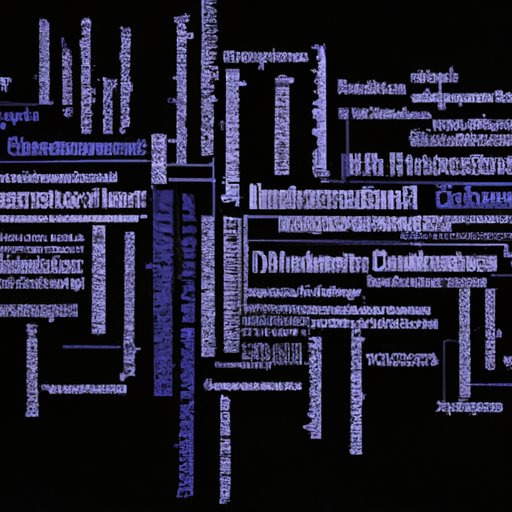Introduction
Information and Communication Technology (ICT) is an umbrella term that describes any technology used to store, retrieve, transmit, manipulate or create information. It includes software, hardware, networks, servers, computers and other related technologies. As technology continues to evolve, so does ICT, with new developments such as cloud computing, mobile applications and artificial intelligence transforming businesses and society.
Understanding ICT is important for both businesses and individuals. For businesses, it can help them stay competitive in an ever-changing digital economy. For individuals, it can open up opportunities to access new tools, services and experiences.

How ICT is Transforming Businesses in the Digital Age
ICT has revolutionized the way businesses operate in the digital age. With the use of ICT, businesses can access powerful tools to manage operations, streamline processes and make informed decisions. According to a study by Microsoft, “Organizations that embrace digital transformation are more likely to exceed their financial goals than those that don’t.”
ICT offers numerous benefits to businesses, including increased efficiency, cost savings, improved customer service and better decision-making. By leveraging ICT, businesses can automate manual tasks, reduce paperwork and streamline processes. Additionally, ICT provides businesses with access to real-time data, which can be used to make more informed decisions.
Examples of ICT’s impact on businesses include the use of cloud computing to store and share data, the use of artificial intelligence to automate tasks and the use of mobile applications to connect with customers. All of these technologies are helping businesses to improve efficiency, reduce costs and increase profits.

Exploring ICT as an Educational Tool
ICT is also being used as an educational tool to help students learn faster, retain knowledge better and become more engaged in the learning process. Through the use of ICT, teachers can provide students with access to digital resources and tools, such as online courses, interactive games and virtual classrooms. Additionally, ICT can be used to track student progress and provide feedback in real-time.
Examples of how ICT is being used in education include the use of online platforms to deliver instruction, the use of video conferencing to facilitate collaboration between students and teachers, and the use of tablets and laptops to enable students to access course materials from anywhere. By leveraging ICT in the classroom, teachers can provide their students with a more engaging and effective learning experience.
The Impact of ICT on Society
ICT is having a profound impact on society, from connecting people around the world to providing access to information, services and products. Through ICT, people have access to a wealth of knowledge and resources, which can be used to empower individuals and communities.
Some of the positive impacts of ICT on society include increased access to education, improved healthcare, enhanced economic development, and greater transparency and accountability in government. For example, ICT can be used to connect remote areas with healthcare providers, provide access to educational resources, and allow citizens to hold their government accountable for its actions.

The Future of ICT: Emerging Trends and Technologies
As ICT continues to evolve, new trends and technologies are emerging. These include the Internet of Things (IoT), blockchain and augmented reality (AR). IoT is a network of connected devices that can collect and exchange data. Blockchain is a decentralized system for storing and sharing data. And AR is a technology that enables users to interact with digital content in the physical world.
These emerging technologies are transforming the way we live, work and play. For example, IoT is enabling businesses to track and monitor their operations in real-time. Blockchain is revolutionizing the way data is stored and shared. And AR is allowing users to interact with digital content in the physical world.
A Look at the Security Challenges Posed by ICT
Despite the many benefits of ICT, there are also risks associated with the technology. As cyber threats become more sophisticated, organizations must take steps to protect their data and systems from malicious attacks. Some of the security challenges posed by ICT include data breaches, phishing scams and malware attacks.
To protect against these threats, organizations must implement robust security measures, such as firewalls, antivirus software and encryption technologies. Additionally, they should educate their employees on cyber security best practices and regularly review their security policies and procedures.
Conclusion
Information and Communication Technology (ICT) is an essential part of modern life. It is transforming businesses, enhancing education and improving society. Additionally, new trends and technologies are emerging, such as the Internet of Things, blockchain and augmented reality. However, ICT also poses security risks that must be addressed. By understanding ICT and taking steps to protect against cyber threats, businesses and individuals can benefit from the power of technology.
(Note: Is this article not meeting your expectations? Do you have knowledge or insights to share? Unlock new opportunities and expand your reach by joining our authors team. Click Registration to join us and share your expertise with our readers.)
